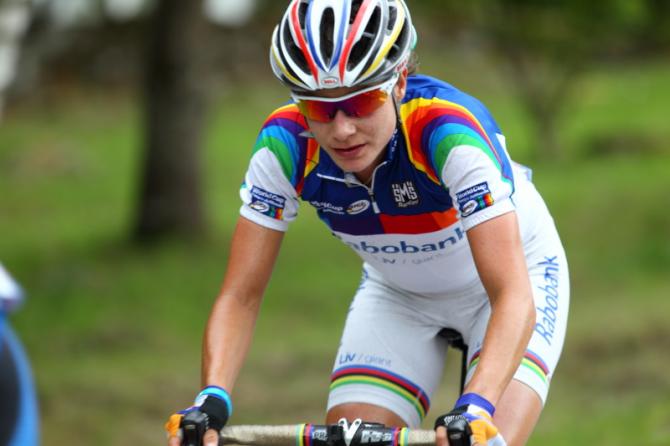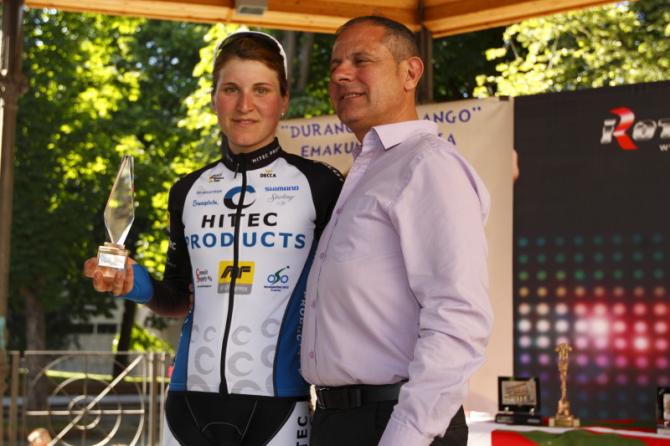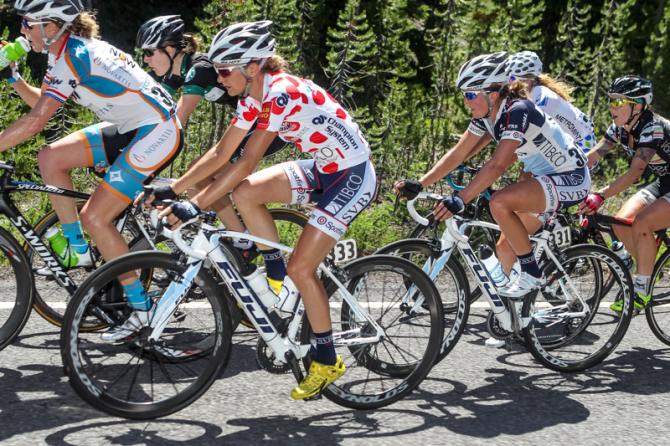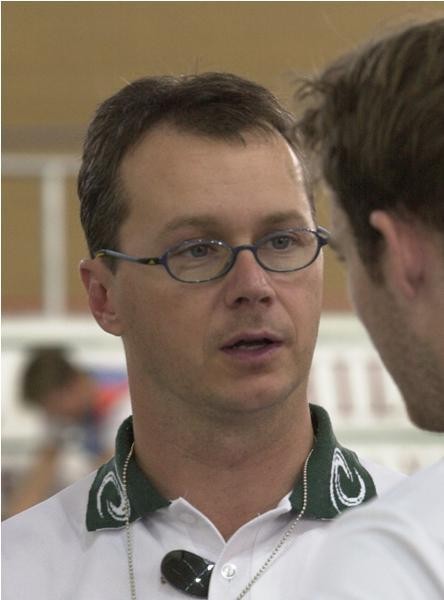Women riders protest security at Giro della Toscana
Orica-AIS sports director blasts race organisers
The latest race content, interviews, features, reviews and expert buying guides, direct to your inbox!
You are now subscribed
Your newsletter sign-up was successful




Only 49 riders finished the fourth stage of the Giro della Toscana internazionale Femminile, as 63 riders, including those from the top teams, either did not take to the start or climbed from their bikes during the stage in protest. The women were protesting the security measures – or lack thereof – during the stage race by refusing to ride the final stage.
Race leader Marianne Vos, and Italians Elisa Longo Borghini and Giorgia Bronzini led the protest, saying that the “necessary conditions of security” were lacking. Only the leading group had police accompaniment, with the peloton forced to find its own way through the traffic.
“We are lucky that no one was injured,” Borghini (Wiggle Honda Pro Cycling) told the Italian newspaper La Nazione, according to De Telegraaf.
Vos supported the action, even though it cost her the overall victory. “There have always been problems in this race with the traffic. It is now time that we make our voice heard."
Race patron Brunello Fanani was outraged. “The race was fine. The protest is disgraceful and self-serving. The jury has spoken of a valid stage with no problems. The losers today are the so-called big names in cycling and women's racing in general.”
The riders remaining in the race rode the 99 kilometers together as a group at a reasonable pace. Aude Biannic (S.C. Michela Fanini-Rox) took the win. Claudia Häusler (Team TIBCO – To the Top) was awarded the overall win.
Orica-AIS's Barras speaks out
The latest race content, interviews, features, reviews and expert buying guides, direct to your inbox!
Orica-AIS sport director Martin Barras issued a statement Sunday evening, in which he blistered race organizers.
“We all gathered in a large meeting room. Directors and riders standing on one side, officials, organisers and the police seated at the table on the other. Then the president of the organising committee asked Giorgia Bronzini (Wiggle Honda), Elisa Longo Borgini (Hitec Products UCK) and Noemi Cantele (BePink) to stand in the middle of the room and explain themselves.
"I have never seen one but that did look like a Kangaroo court to me. More importantly, the organisers knew what they were doing: Isolate and divide the leaders and we will soon find the group will is not as strong and coherent as one thinks. And it isn’t.”
He continued, “It became apparent that what had started as a discussion between all concerned was coming rapidly to a standoff, and we (the teams) had better get a common position quick. The general consensus was either we race or we don’t. There should be no middle ground. It was also clear that no amount of reassurances by the organisers or the police was going to re-establish the confidence lost during the previous days (and years, as far as this particular race is concerned). That made my position clear (we don’t race) and it was now a matter of seeing how many teams thought likewise and how consistent we would be.
"Sensing the mood in the room, organiser Brunello Fanini did his block, told us all to “go home” and walked dramatically out of the room, only to re-enter within a few seconds. The officials met in private, then asked for Longo Borgini to present herself to them as a rider representative. Thankfully her Director saw fit to accompany her in. Following this, we were called back in to the room and told by officials that as far as they were concerned, the race would start and it was our decision to field our teams or not.”
Barras then met with his riders and they reached the unanimous decision not to race. He noted, “All the Foreign trade teams pulled out, the Italian teams raced (with the notable exception of BePink and all but one rider of Faren Let’s Go Finland!).”
Still, Barras saw the matter optimistically. “In our sport’s current situation, one could see women’s racing as the new way of cycling. Women’s racing is un-encumbered by years of tradition and culture and could easily develop a new structure, embrace technology and media like other major sports. It could be the test bed for cycling’s changing culture and could easily lead the way. All that is required is a bit of vision and a sense of fairness and fair go."
"Today was our best attempt to do our part.”

